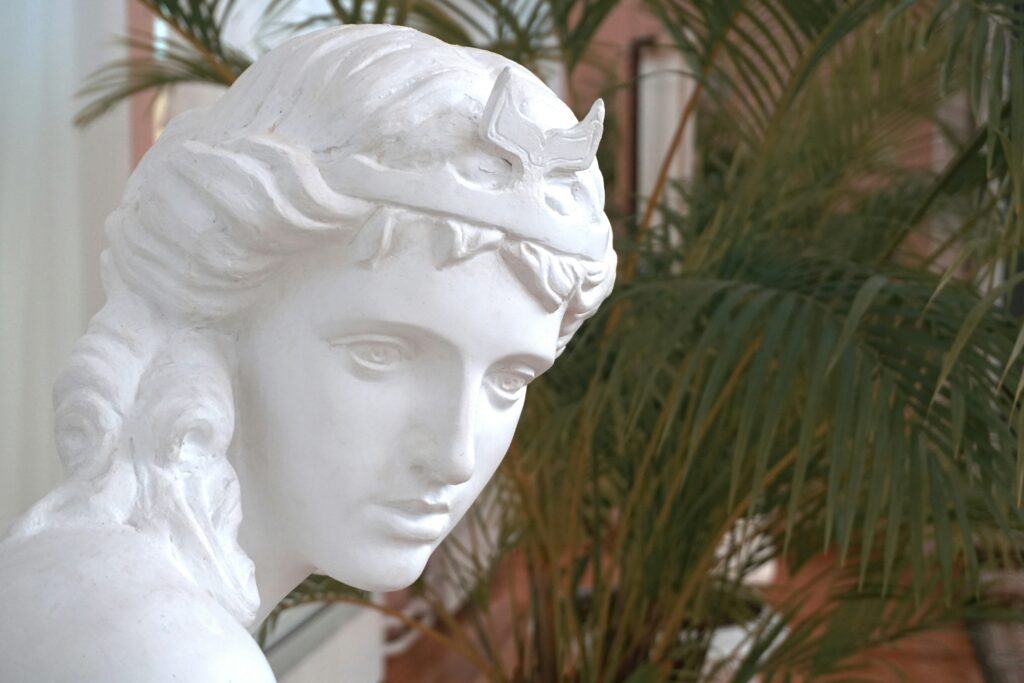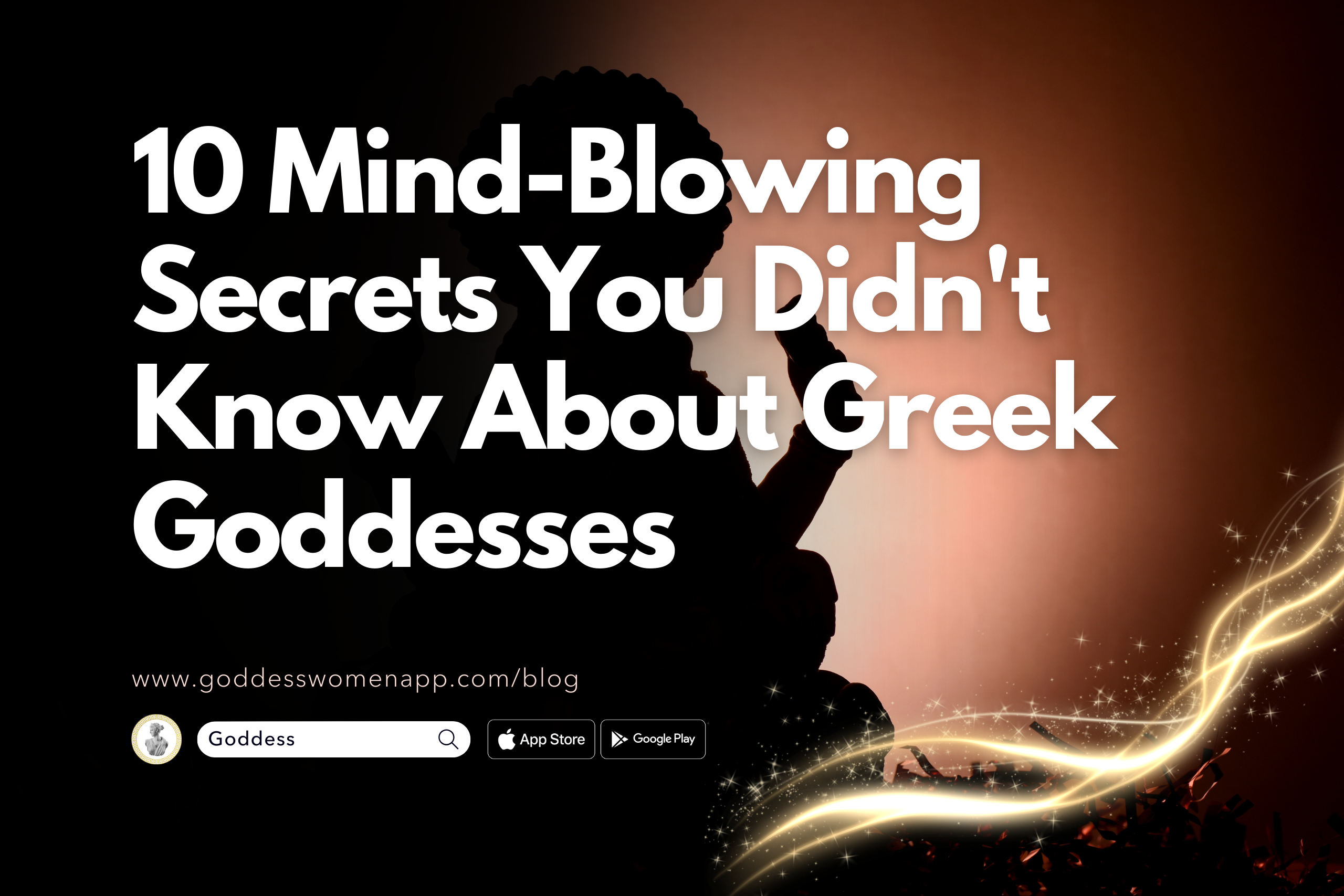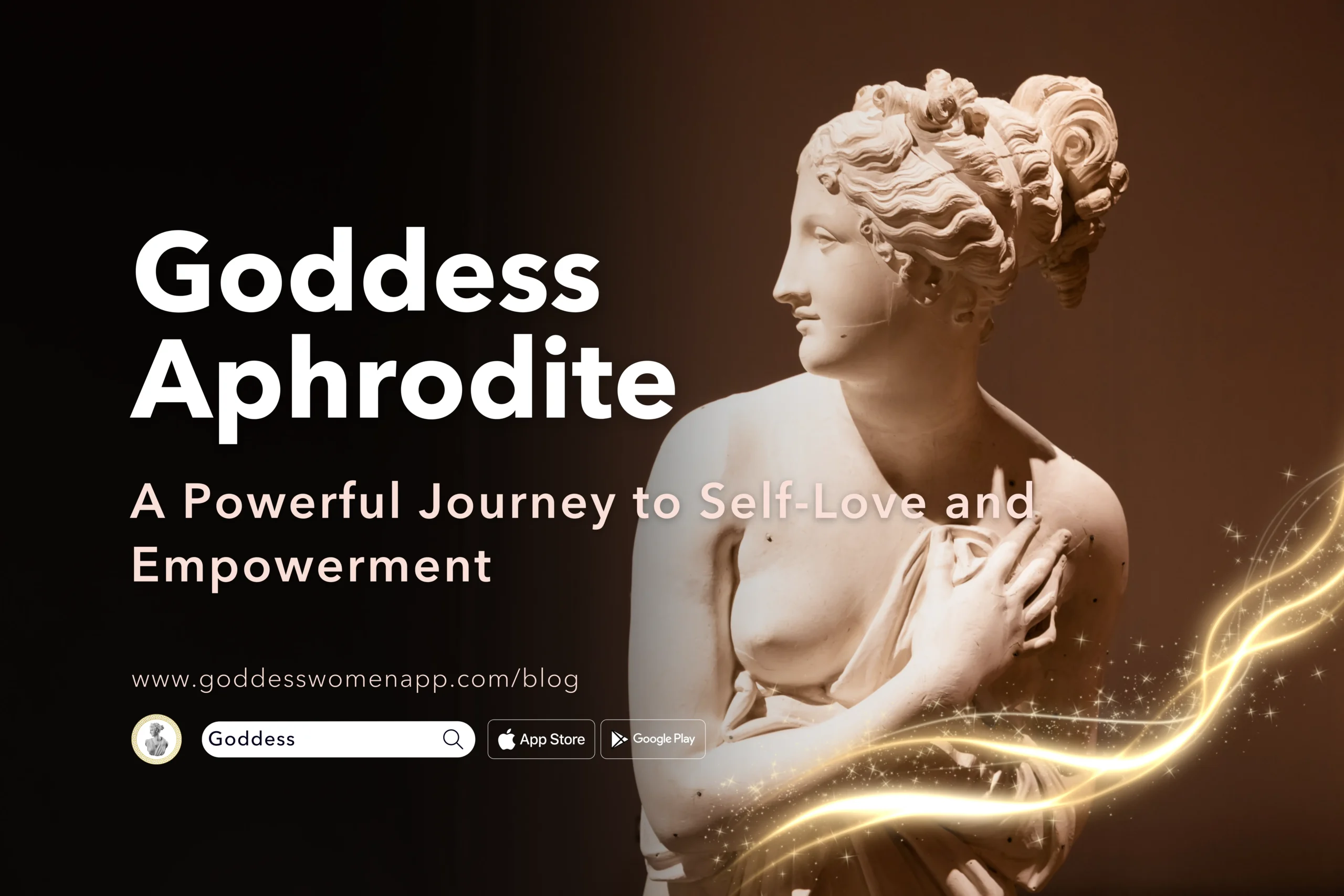Table of Contents
Introduction to Greek Mythology
Have you ever wondered why the stories of Greek goddesses still captivate so many of us today? From the peaks of Mount Olympus to the depths of Hades, these mythical figures from ancient Greece play pivotal roles in tales that are much more than just ancient history. They are a deep-seated part of our cultural imagination, influencing everything from literature and art to our understanding of human qualities and the natural world. Today, I’m going to share with you some mind-blowing secrets about Greek goddesses that might change the way you see these iconic deities of Greek mythology.

1. Athena’s Olive Tree Miracle
Among the many powerful gods and goddesses of the Greek pantheon, Athena, the goddess of wisdom, stands out for her unique blend of strength and strategy. The ancient Athenians revered her not just as a war god but also as a patron of peace and patronage under her epithet, Athena Ergane. One of her most celebrated myths involves a legendary contest with Poseidon, the god of the sea, that left a lasting legacy on the landscape of Greece and its stories.
The Contest for Athens in Ancient Greece
According to Greek mythology, Athena and Poseidon vied for the patronage of the newly founded city of Athens. The competition was to gift the city the most useful and impressive present. Poseidon struck the earth with his trident and created a spring, but the water turned out to be salty and not very practical for the ancient Greeks. Athena, on the other hand, offered something far more beneficial. She planted the first olive tree on the rocky soil of the Acropolis.

The Significance of the Olive Tree
The olive tree gifted by Athena was no ordinary tree. It was a symbol of peace and prosperity, and its olives and the oil produced from them soon became staples of ancient Greek life, used not just in food but also in ceremonies and as fuel for lamps. Athena’s gift helped the ancient Athenians thrive, making her a beloved deity. The Homeric hymn praises her foresight and grace, embodying the wisdom for which she was known.
Moreover, the olive tree has a deeper significance in Greek culture. It represented renewal and peace, reflecting Athena’s role as a stabilizer among the often volatile gods and goddesses on Olympus. The ancient Greeks held the olive tree sacred, and it became central to their economy and way of life, symbolizing Athena’s enduring influence.
Athena’s victory in this divine contest not only secured her place as the patron deity of one of the most influential city-states of ancient Greece but also marked the beginning of her special relationship with Athens, which featured prominently in Greek literature and was celebrated by all the ancient Greeks.
The story of Athena and the olive tree is just one of many that highlight the intricate relationships and profound wisdom of the Greek goddesses. As we delve further into these tales, we uncover layers of meaning that continue to resonate through centuries, reminding us of the rich tapestry of myth and human life woven by the ancients.
2. Artemis and Her Pack of Golden Hounds
Artemis, the twin sister of Apollo and a major figure in Greek mythology, is renowned not only as a goddess of the hunt but also for her deep connection to the wilderness and its creatures. Among her most intriguing companions are her pack of golden hounds, creatures that symbolize her prowess and purity.
The Divine Huntress and Her Sacred Animals
Artemis’s role as a protector of the young and a patron of hunting is well-documented in Greek literature, but what makes her stand out in the Greek pantheon are her golden hounds. These were no ordinary animals; they were gifted with speed, grace, and a glittering golden coat, reflecting the divine nature of their mistress. According to ancient Greek myths, these hounds could hunt anything from the elusive winged horse Pegasus to the mightiest of stags.
Symbolism of the Golden Hounds
The golden hounds are not just a testament to Artemis’s hunting abilities but also to her role as a guardian of the natural world. These sacred animals symbolize purity, loyalty, and the protective aura of Artemis over the ancient Greeks’ forests and mountains. They represent a harmonious balance between man and nature, a central theme in many Homeric hymns devoted to the goddess.
3. Aphrodite’s Birth Was Literally Out of This World
The origins of Aphrodite, the goddess of love and beauty, are among the most spectacular and dramatic in all of Greek mythology. Unlike other gods and goddesses born in the traditional sense, Aphrodite’s birth was a cosmic event that continues to captivate scholars and enthusiasts of ancient Greek culture.
A Heavenly Event
According to Hesiod’s “Theogony,” one of the seminal texts of Greek mythology, Aphrodite was born from the sea foam produced by the severed genitals of Uranus, which were thrown into the sea by his son Cronus. This startling origin story is not only unique but highlights the interconnected themes of beauty and violence that pervade much of ancient Greek mythology.
Aphrodite Greek Mythology and the Beauty of Creation
Emerging from the sea near the island of Cyprus, Aphrodite was greeted by the Seasons and adorned with divine garments. Her arrival on Mount Olympus was met with awe by all the gods and goddesses, establishing her immediately as a deity of immense power and allure. The Romans, equating her with Venus, often depicted her emergence as a symbol of ultimate beauty and fertility, attributes that were highly revered in ancient societies.
Her birthplace, often depicted in ancient Greek sculpture and Roman marble copies, has become a symbol of the beauty and unpredictability of the sea and earth, tying her even more closely to the natural elements from which she sprang. This dramatic beginning also set the stage for Aphrodite’s numerous encounters with gods and mortal lovers, further intertwining her story with those of many major and minor mythological figures throughout the ancient world.
These tales of Artemis and Aphrodite not only enrich our understanding of the roles and perceptions of Greek goddesses but also reflect the ancient Greeks’ deep reverence for the natural world and the supernatural forces they believed guided human life.

4. Hera’s Sanctuary That Predates Zeus’ Temples
Hera, often known as the goddess of marriage and queen of the Olympian gods, holds a fascinating and complex role within Greek mythology. Her worship predates even that of Zeus, her husband, reflecting her significance in the ancient Greek religious landscape.
The Ancient Worship of Hera
Hera’s sanctuaries, some of the oldest in ancient Greece, provide a window into her veneration before Zeus rose to prominence on Mount Olympus. The most famous of these is the Heraion of Samos, an ancient title that signifies its importance. This sanctuary not only predates the more well-known temples of Zeus but was considered one of the most sacred places in the Greek world. The massive structure and the extensive offerings found there speak to her once supreme status among the gods and goddesses.
Hera’s Role in Ancient Greek Society
Long before she was overshadowed by Zeus, Hera was worshipped as a powerful, independent deity. The Homeric hymns and other pieces of Greek literature paint her not just as a consort but as a titan goddess with her own distinct domain and powers. Insights into her worship practices reveal that she was celebrated for her protective qualities over women, particularly in marriage and childbirth, aspects that were crucial in the human life of the ancients.
5. Hestia’s Fire Never Dies
Hestia, the goddess of the hearth and home, is one of the lesser-sung heroes of Greek mythology. Her eternal flame in ancient Greek homes was more than just a practical necessity; it held deep spiritual significance, representing the core of family and communal life.
The Eternal Flame of Hestia
Every ancient Greek home had a hearth dedicated to Hestia, where a fire burned continuously, never allowed to go out. This eternal flame symbolized the stability and safety of the household, serving as a sacred point where families gathered to warm themselves and to cook their meals. The fire was a cleansing ritual that also signified the presence of Hestia in every aspect of home life, ensuring peace and harmony.
Hestia’s Lasting Virtues
Though her worship was not marked by the grandeur of temples like those of other gods and goddesses, Hestia’s impact was no less significant. Her virtues of domesticity, hospitality, and familial bonds are still celebrated in many cultures around the world, reflecting the timeless values she embodies. This quiet yet profound influence underscores her role as a cornerstone of both the Olympian family and ancient Greek society.
These explorations into the sanctuaries of Hera and the eternal flame of Hestia not only deepen our understanding of these revered goddesses but also illuminate the different aspects of ancient Greek religion and society. They remind us of the rich, mythological heritage that continues to influence modern life and culture.

6. Demeter’s Lesser-Known Law Code
Demeter, the Greek goddess of agriculture and the harvest, is best known for her pivotal role in the changing of the seasons through the myth of her daughter Persephone. However, her influence extends beyond her control over the earth’s fertility. Demeter was also a lawgiver, whose rules and regulations helped shape the ancient world.
The Legal Contributions of Demeter
Demeter’s laws, though lesser-known, were crucial in the development of ancient Greek societal norms, particularly those governing agriculture and the sacred rights of marriage and family life. These laws were not just civil; they were sacred, intertwining with the rituals and annual festivals celebrated in her honor, such as the Thesmophoria, a festival attended solely by women. This event underscored her role in defining the legal status of women in ancient Greece, particularly in terms of marital and familial rights.
The Impact of Demeter’s Laws
The ancient Greeks viewed these laws as divine gifts from Demeter, as they were believed to have been handed down during her search for Persephone. They were integral to maintaining not just the physical, but also the moral and spiritual health of the community. Her legal system emphasized the protection of the agrarian way of life, which was the backbone of the ancient Greek economy.

7. The Secret Abilities of The Muses
The Muses, daughters of Zeus and Mnemosyne, are famously known as the goddesses of the arts, inspiring creators in fields from literature to music. However, their abilities extend far beyond merely sparking human creativity; they possess unique powers that have profound impacts on the realm of gods and goddesses and the mortal world.
The Hidden Powers of the Muses
Each of the nine Muses holds sway over a different aspect of the arts and sciences, but their collective influence is seen in their ability to bestow both memory and forgetfulness, to inspire and to curse. Their secret abilities include the power to confer eternal fame or oblivion upon those they choose, guiding the fortunes of poets, musicians, and other artists throughout the Greek pantheon and the ancient world.
The Muses in Greek Literature and Culture
The Roman poet, Ovid, depicted the Muses as pivotal figures in the preservation of Greek literature and culture. Their roles in the Homeric hymns and other ancient texts underscore their capacity to serve as both muse and guardian of the arts. Their influence was believed to be so powerful that they could affect the outcome of events recounted in epic tales and were integral in maintaining the cultural heritage of Greece.
These explorations into Demeter’s laws and the secret powers of the Muses not only provide a richer understanding of these mythological figures but also reflect the broader values and beliefs of ancient Greek society. Through their divine statutes and inspiring capabilities, they shaped the lives of the ancient Greeks in ways that continue to resonate through the ages.

8. Nyx: The Night Goddess Who Commands Respect
Nyx, the primordial Greek goddess of the night, stands as one of the most powerful and awe-inspiring figures in Greek mythology. Her dominion over the night and her influence on both gods and mortals showcase her formidable presence within the ancient Greek pantheon.
The Power and Mystique of Nyx
In the ancient world, Nyx was considered so powerful that even Zeus, the king of the Greek gods, held her in high regard and often stood aside for her decisions. The Homeric hymn dedicated to her speaks volumes about her influence, describing her as the very essence of night—a veil of dark majesty that wraps around the earth, dictating the cycle of day and night that even the gods must obey.
Nyx’s Brood: A Legacy of Darkness
Nyx’s children include a number of other significant mythological figures, such as Thanatos (Death) and Hypnos (Sleep), emphasizing her role as a titan goddess who shapes fundamental aspects of human life and the cosmos. Her offspring serve as extensions of her dominion, bringing the sweet release of sleep or the finality of death to the mortal world.
9. Persephone’s Dual Reign
Persephone, daughter of Demeter and Zeus, is best known for her dramatic abduction by Hades, which led to her dual role as the Queen of the Underworld and the goddess of spring. Her life represents a poignant narrative of power and adaptation within Greek mythology, reflecting ancient Greek attitudes toward the cycles of nature and life.
The Queen of Contrasts
Persephone’s existence is a study in contrasts. For part of the year, she presides over the dead in the underworld alongside Hades, depicted in many Greek sculptures as a regal and stern figure. Yet, when she returns to the surface each spring, she embodies growth and renewal, celebrated by the ancient Greeks during the festival of Eleusinia, which honored both her and Demeter. This festival was not only a cleansing ritual but a celebration of life’s persistence.
The Influence of Persephone’s Dual Roles
Persephone’s story resonates deeply in Greek literature as a symbol of the indomitable spirit of life, returning each year to bring spring’s warmth after winter’s cold. Her dual reign illustrates the ancient Greeks’ understanding of the cycles of life and death, and their acceptance of these phases as crucial to the balance of the natural world and human existence.
Both Nyx and Persephone embody the strength and complexity of Greek goddesses, representing different aspects of the ancient Greeks’ spiritual and daily lives. Through their myths, we gain insight into the profound ways the ancient Greeks interpreted the forces of nature and human destiny.

10. The Real Power of Gaia
Gaia, the primordial Earth goddess, is perhaps the ultimate embodiment of power and nurturing in Greek mythology. As the mother of the Titans, and through them, the Olympian gods and goddesses, Gaia’s influence permeates every layer of Greek mythology, connecting the celestial heights of Mount Olympus to the deepest depths of Hades.
Gaia’s Omnipotent Role
Gaia’s role in the ancient Greek pantheon cannot be overstated. She is the foundational figure from whom the complexities of the Greek gods and the entire mythological structure spring. Her powers extend beyond mere creation; she is the literal Earth itself, encompassing all aspects of nature and life. Greek literature often highlights her as a figure of immense wisdom and strength, capable of summoning or quelling any force on Earth or the heavens.
The Symbolism of Gaia in Greek Sculpture and Art
In ancient Greek sculpture and art, Gaia is frequently depicted as a nurturing yet formidable figure, often surrounded by the sacred animals she protects. These images serve as a powerful reminder of her role as the eternal mother, sustaining and ruling over the universe with a balance of compassion and authority. Her connection to the earth and its fertility made her worship central to ancient Greek life, often celebrated in festivals and rituals that honored her as the sustainer of life.
FAQ Section
Who are the 12 Greek goddesses?
The 12 major Greek goddesses, often referred to in the context of the larger collection of Olympian gods, include:
1. Hera – Goddess of marriage and family, and queen of the gods.
2. Demeter – Goddess of the harvest and agriculture.
3. Hestia – Goddess of the hearth and home.
4. Athena – Goddess of wisdom, courage, and warfare.
5. Artemis – Goddess of the hunt, wilderness, and childbirth.
6. Aphrodite – Goddess of love and beauty.
7. Persephone – Queen of the Underworld and goddess of spring growth (often included although not originally one of the Olympians).
The other Olympians include gods like Zeus, Poseidon, and Apollo, making up a pantheon that governs different aspects of the cosmos and human life.
Who is the Greek goddess of females?
Hera is often considered the goddess most associated with women, as she is the goddess of marriage and the protector of married women. Additionally, Artemis and Aphrodite play significant roles related to aspects of female life and femininity: Artemis protects young women and childbirth, while Aphrodite embodies love, beauty, and sexual desire.
Who is the famous Greek goddess?
Athena is arguably the most famous Greek goddess. Known as the goddess of wisdom, war, and practical reason, Athena is renowned for her strategic skill in warfare and is often depicted with an owl, symbolizing wisdom. She is also celebrated for her patronage of various city-states, including Athens, which is named after her.
Who are the 3 main goddesses in Greek mythology?
The three main goddesses in Greek mythology are:
1. Hera – As the queen of the gods and the goddess of marriage and family, Hera plays a central role in many myths, embodying the aspects of matronly dignity and wrath in response to Zeus’s infidelities.
2. Athena – Born from Zeus’s head fully grown and clad in armor, Athena represents wisdom, courage, and warfare. She is a protector of heroes and cities.
3. Aphrodite – Emerging from the sea foam, Aphrodite is the goddess of love, beauty, and desire, influencing both mortals and gods with her allure.
These goddesses have profoundly impacted Greek mythology, each embodying different aspects of life and morality, shaping the ancient Greek interpretation of the world around them.
Conclusion
The tales of these Greek goddesses—from the wisdom and war strategies of Athena to the nurturing and earth-shaking powers of Gaia—reveal the rich tapestry of mythology that helped shape the ancient Greek understanding of the world around them. Each goddess brings a unique story and set of powers that reflect broader themes of life, nature, and morality, embodying the ancient Greeks’ quests for knowledge and understanding of the human condition and the forces of nature.
Their stories are not just relics of the past; they continue to offer insights and inspiration for contemporary life. Whether you identify with the strategic wisdom of Athena, the nurturing power of Demeter, or the mysterious allure of Nyx, the enduring lessons of these mythological figures remain relevant today.
To explore which Greek goddess you might be, I encourage you to visit the Goddess App and take the archetype quiz. Discover which deity’s attributes resonate with your personality and life experiences. Engage with these timeless stories and see how they might illuminate your own path.
Take the quiz now and find out which Greek goddess you embody!





